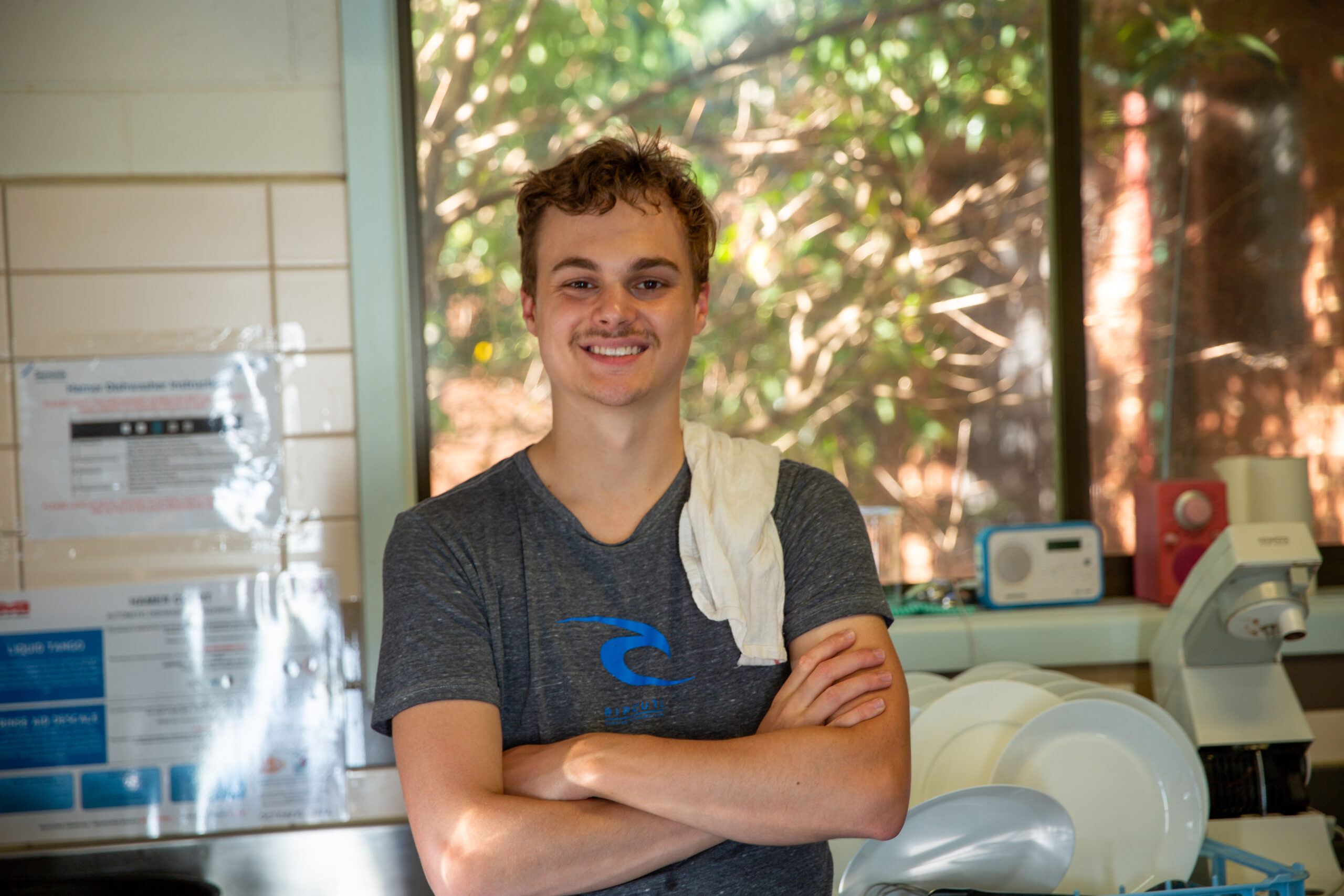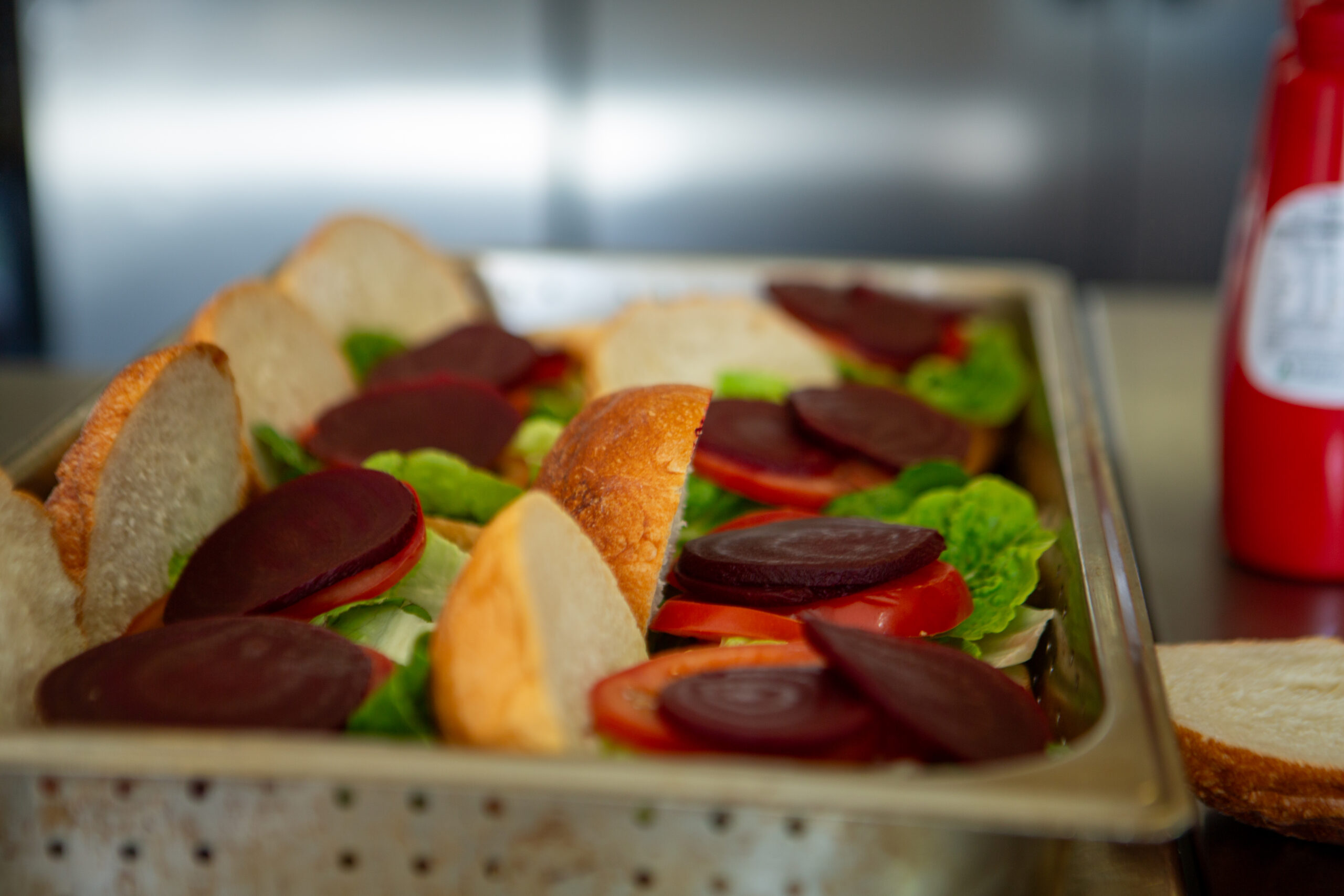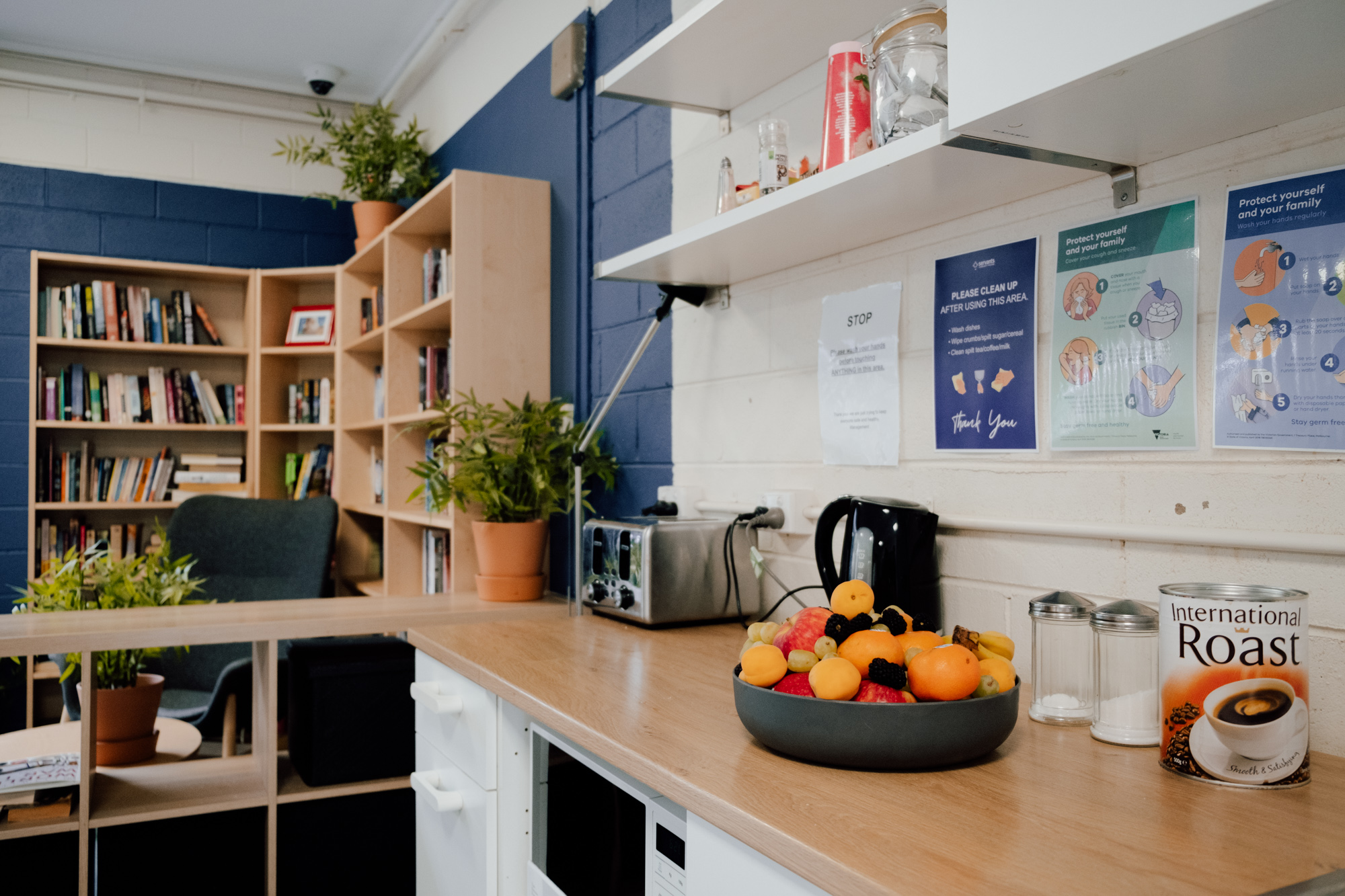How cooking with Servants changed my perspective on dignity.
Servants cook Isaac Ackland reflects on 14 months of serving residents at Hamer Court.

I didn’t plan to work at Servants for long – how plans change!
After all, who wants to spend hours each week preparing meals in a rooming house? To the average person, it doesn’t sound that appealing. But it was a job – and for a cause I cared about. I was burnt out after working endless shifts in my previous hospitality role and this was a good temporary gig to earn an income while I looked for another job.
But now, I’ve been cooking for the residents at Servants’ Hamer Court for more than a year, and I’m grateful for the experience. My perspective has changed as the months have rolled by, and I’ve grown fond of the friendly hellos and cheerful introductions from residents as they enter the dining room and chat with the cook of the day.
I still remember my first shifts: When it was time to serve, the residents queued up in hearty conversation with each other. Even the more introverted nodded and murmured thanks as they accepted a plate.

As cooks arrive for their shift, they connect with residents in the communal dining and lounge areas. At Hamer, you can hear residents yelling out trivia answers at Who Wants to be a Millionaire on TV.
Vulnerability in service
Remembering names has always been a crippling anxiety for me, but after a few shifts, a few stuck in my mind and the others gradually fell into place.
As time went by, I realised the friendly greetings and polite small talk with residents would grow into ongoing relationships and longer conversations as the guys would chat while I chopped veggies or mixed the day’s curry.
Cooking with Servants is unique. You’re employed to prepare a meal, but a big part of the value is putting down the utensils and speaking to these men. Often, a simple question about their day results in a discussion about their mental health, or something else similarly deep.
People are so vulnerable when they connect with someone serving them. Residents have told me about their results from doctor’s appointments, struggles during withdrawals, and their prayers for the future.
Perhaps when a person is feeding you daily, people feel it’s safe to share a little more about what’s going on than just their dietary requirements.
Some of my best conversations have been over a countertop. Or after a compliment for the extra effort to marinate the lamb overnight.
There’s something about the nature of mealtimes that brings people together. Eating is an exercise of trust: that what you eat was prepared well, that you are sitting in commonality with other people looking to recover from the day, and that the conversations over the table will be just as restorative and comforting as the food you experience together.
It’s not always easy. Cooking for 28 men at a time was stressful to learn and still is sometimes. Occasionally I catch some of them in a mood. Occasionally, they catch me in a mood. Sometimes I’m late and they are hungry. Sometimes we don’t say anything as they silently take their plate. You walk the highs and lows together.
Like family, ongoing relationships require patience, acceptance, and forgiveness. On their part and my own.
One of the residents told me mealtimes ultimately glue Servants’ house together where other housing models can’t. All the restlessness and frustrations of a day dissipate when everyone sits down together with full plates, and full bellies help residents settle as they retire to their rooms for the night.

Our cooks provide healthy and nutritious meals six nights per week at our rooming houses.

One of the communal resident kitchen/dining areas at Hamer.
Giving dignity is the reason I stay.
When I make a meal I’m proud of, I get the same gratification as cooking for my family. Their thanks are generous, their compliments are sincere. Their feedback is patient if I burn the gravy. Because the level of care they experience with Servants isn’t always something they are used to. It’s something I feel they deserve.
It’s the reason I’ve been here for over a year. It’s also why I volunteer in a fuller capacity in Servant’s office. The residents’ level of gratitude for the care that everyone should receive at the most basic level is worth more than anything in any hospitality role I have experienced. It’s about dignity.
When he’s not cooking for residents at Hamer, Isaac is studying a double Bachelor of Arts/Bachelor of Commerce at Deakin University, and volunteers additional time in Servants’ communications team.